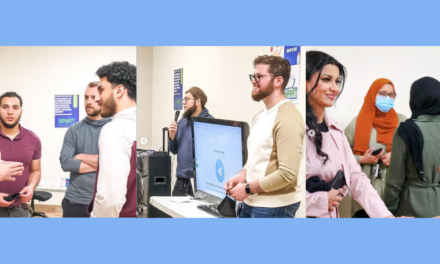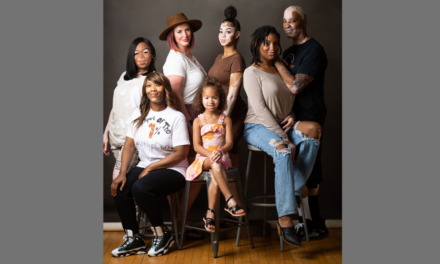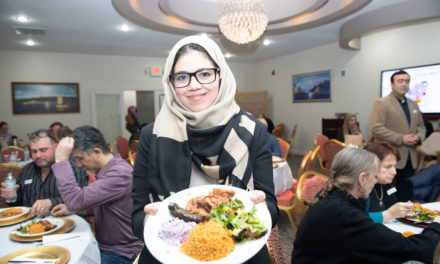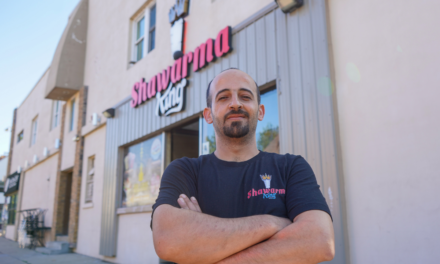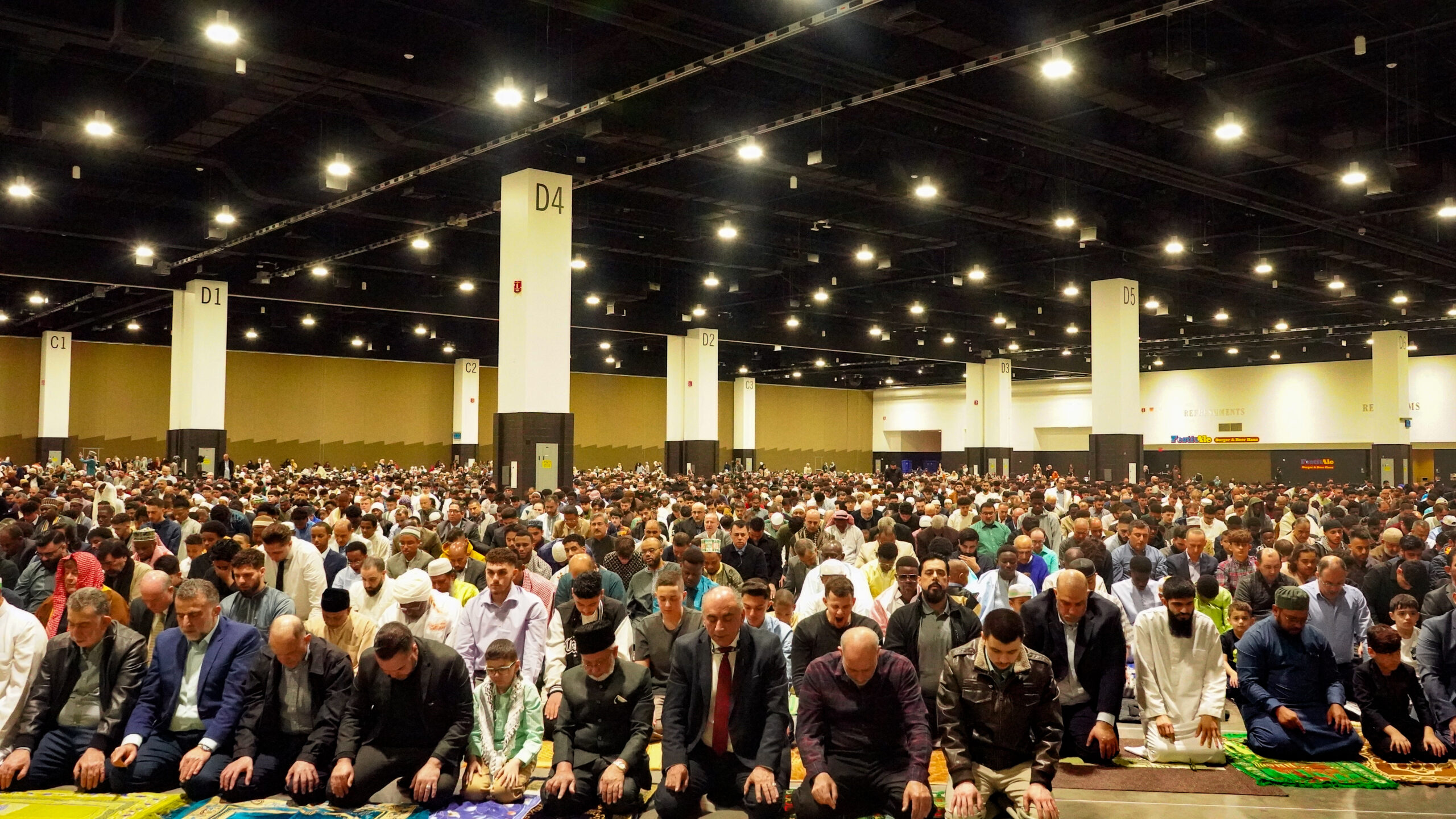
Photo by Kamal Moon
Thousands in Milwaukee gather for Eid Al-Adha prayer. The community’s growth has spurred the development of mental health resources and infrastructure.
Islamic Society of Milwaukee recently invited Muslim mental health professionals “to meet with the board to discuss the mental health resources in our community and the steps we need to take to utilize them for the benefit of our community and the students in Salam School,” said ISM president Salah Sarsour. “It is a priority.”
Among them was Munther Barakat, Psy.D., director of Behavioral Health Therapy for Aurora Health Care System. “They wanted to get professionals from the community to start talking about how to develop a structure to address the mental health needs in our schools and in the community as a whole,” Dr. Barakat told the Wisconsin Muslim Journal in an interview prompted by this month’s suicide prevention awareness observations.
September is National Suicide Prevention Awareness Month and Sept. 10 is World Suicide Prevention Day, making it a time to open dialogue about and raise awareness of suicide, one of the leading causes of death among teenagers in the United States, according to the CDC’s National Center for Health Statistics.
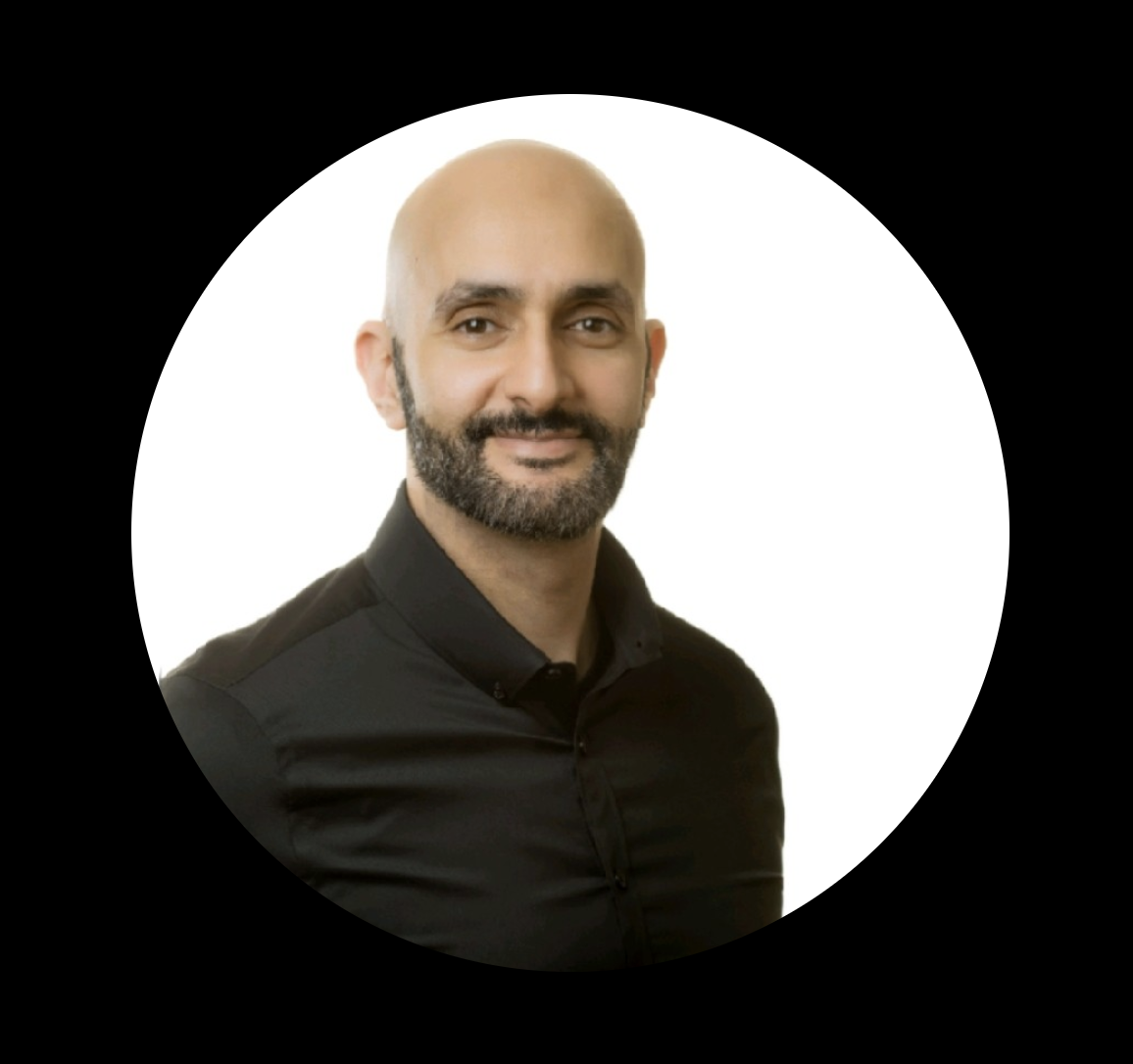
Munther Barakat, Psy.D., Aurora Health Care System’s director of Behavioral Health Therapy
“It is excellent we are having that discussion because our schools are expanding and our community is growing,” Dr. Barakat said. “Once you have a large community, it becomes the community’s responsibility to understand that with bigger communities come more needs. And one of those is mental health.”
The Muslim community in southeastern Wisconsin is growing. Local imams estimate the Muslim population in greater Milwaukee to be up to 30,000. The K-12 Salam School, with its long waiting list for admission, is increasing its capacity by building a new high school on a 13-acre property in Franklin.
With this growth, community leaders recognize the need to develop resources and formal referral structures so members of the local Muslim community can get the help they need, Sarsour said.
“I’m glad to see the leaders at ISM understand the need to have mental health resources for the kids and also for the community,” Dr. Barakat said. “We also need programs that destigmatize mental health
“It is our responsibility as the Muslim community to create an environment where people can talk openly about mental health. We need to push against the stigma by taking opportunities to educate ourselves and consider our response to mental health issues.
“Fortunately, there has been a lot of progress on this, particularly in the Milwaukee community,” he added.
Fighting the stigma
Dr. Barakat, who has almost 20 years of experience as a psychologist and has helped develop suicide prevention protocols within a psychiatric hospital setting, noted beliefs at the intersections of suicide and religion, and not only Islam, contribute to layers of stigma.
“First of all, there is a stigma around mental health in general,” he said. “And then there is a stigma around suicide. Suicide is looked at as a sin. But how does mental health factor in? I looked into it and found there are many hadiths (the teachings of Prophet Mohammad shared with his companions) acknowledging mental health.
“Mental health can be a factor in suicide and should be taken into consideration. In Islamic literature, when someone attempts suicide, it doesn’t mean that individual or their family should be condemned by their community. They should still be accepted and supported. There shouldn’t be any judgmental attitudes around it.

Islamic Society of Milwaukee president Salah Sarsour
“It’s difficult in the Muslim community. There’s shame around it. There’s a tendency to hide mental illness. As a community, we don’t talk about it. When suicide happens, it is not a failure of a family or an individual. It’s a failure of our community.”
One consequence of the stigma is that people don’t address their mental health issues, he said. “When families struggle with mental health, they often rationalize it away as being related to development or acute stressors without really taking a good look at family history, as you would with any other illness. Usually, when there’s depression, there’s a family history. When there are psychosis disorders, there’s a family history. The real problem gets explained away rather than families being honest with themselves about their mental health.
“One of the best ways to tackle stigmas around mental health is to normalize it by talking about it,” Dr. Barakat suggested. “For example, we might have an event just to talk about emotions. We all have emotions and no one is going to deny it. Through discussion, we learn to understand the continuum of emotions. You may be sad. You can get to a point of chronic sadness, depression. How does that happen? How can you get out of it?”
Creating space for conversations about mental health
Community education and discussion can help families “reframe their thoughts around mental health and realize it is not necessarily something we have control over,” Dr. Barakat said, “Just as with other medical illnesses, there’s a genetic component to it. And there’s a medical component to it. That’s why medications and therapies work.”
The good news is the Muslim community “is being more progressive in understanding mental health,” he said. “There are more Muslims coming into psychology and psychiatry fields. A lot of information is coming out about addressing mental illness in our community.”
Dr. Barakat praised the Muslim Women’s Coalition for organizing conferences about behavioral health. MWC invited mental health care practitioners, scholars and the general public, Muslims and non-Muslims alike, to participate. Those programs both educated the Muslim community and non-Muslim counselors seeking to develop cultural competency to work with Muslim populations.
“We’re heading in the right direction but we cannot be stagnant. We should continue to look for opportunities to develop an open environment where everyone feels they can talk about their mental health.”
Building the community’s mental health infrastructure
Dr. Barakat and five other Muslim healthcare professionals (including three ISM board members) met with ISM’s board and its executive director Saturday, Aug. 23, to start building a plan to connect community members and Salam School students with mental health resources.
“For the past few years, we have been working with partners at MCHC (Muslim Community and Health Center) and MUHSEN (Muslims Understanding and Helping Special Education Needs) who have been very supportive,” Sarsour said. Now that the community has grown, there is a need for a more comprehensive plan, he said. “We need to know what resources we have in our community and what next steps we need to take.”
Among its first steps, ISM hired a mental health profession to serve both Salam School and Milwaukee’s Muslim community in general. Karam Alramahi of Franklin started this week as a student support services coordinator and mental health wellness specialist. At Salam School, she is responsible for “planning, coordinating and implementing comprehensive support systems that promote the emotional, social and spiritual wellness of students and their families,” the job description says. In the community, she is responsible for providing emotional support, crisis intervention and counseling referrals for individuals and families.”
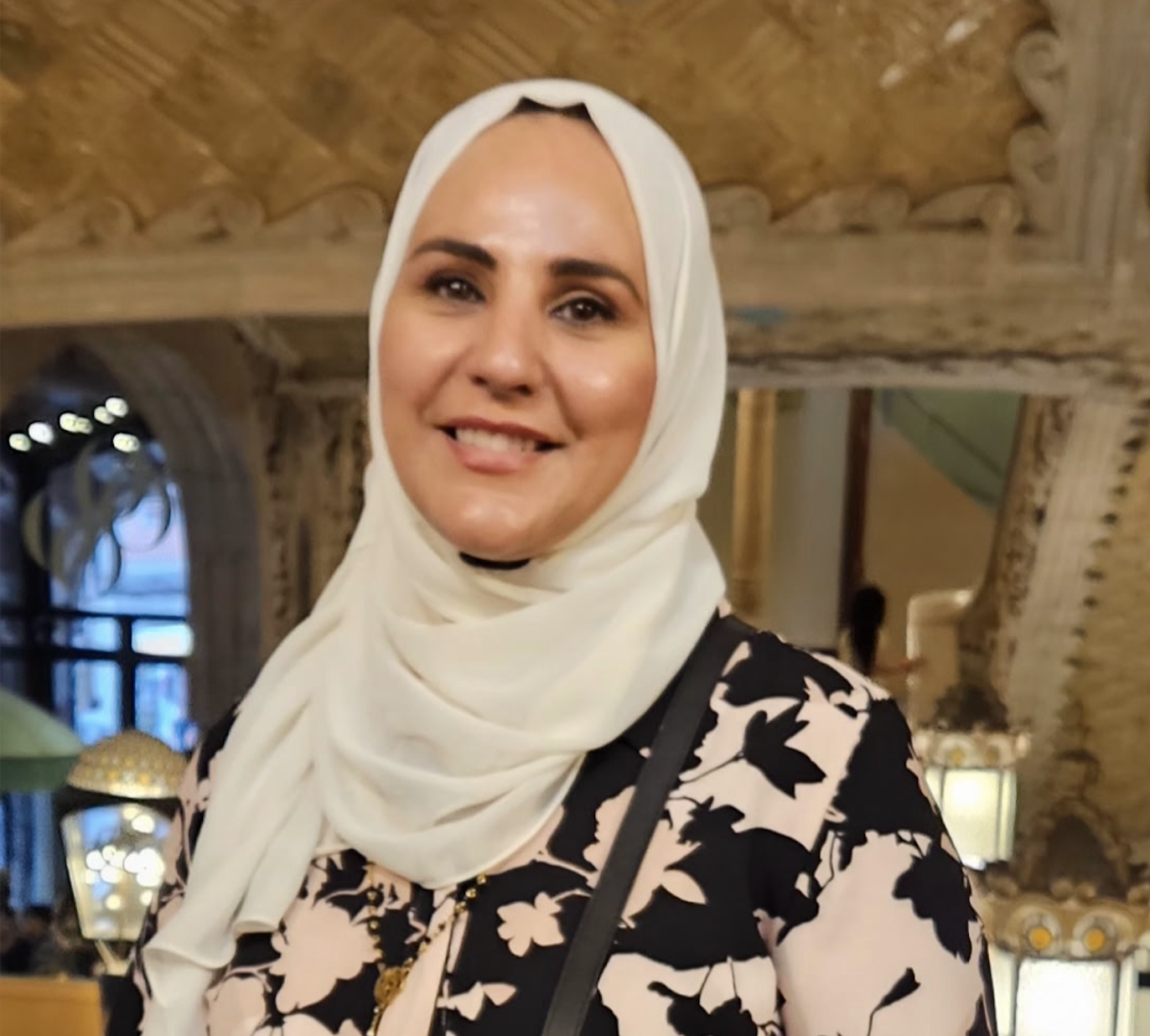
Karam Alramahi, Islamic Society of Milwaukee’s mental health wellness specialist and student support services coordinator
The meeting with mental health professionals was an important second step in building the infrastructure in which she works, Sarsour explained. ISM will continue moving forward aggressively to build it, he told WMJ. The first meeting was with Muslim mental health providers. ISM will also seek input from beyond the Muslim community, he said.
Dr. Barakat is optimistic. “After that meeting a couple of weeks ago, I saw they want to be proactive. I liked that they reached out to us to talk about it.
“Since we have their attention, we want to continue to move forward with it. People have a tendency to pay attention to mental health when issues are acute. They underestimate the power of proactive intervention.
“It is crucial for us to develop programs that help the overall wellbeing of the community. With the growth of our community, it’s something we can’t ignore.”
